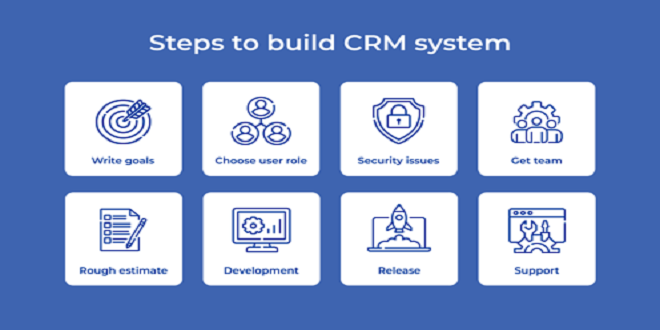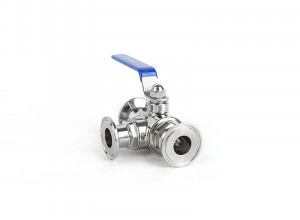CRM features are essential for your business to function.

Even in the digital age, customer relationship management (CRM) software is still extremely profitable for all businesses. While tools such as Google Analytics track leads, CRM manages interactions with customers throughout the sales funnel. CRM, along with other software, offers many management and insight options. One of the biggest criticisms of CRM is its overabundance in features. Not all features are equally or equally useful. This article will discuss the essential CRM features that your business needs, and key CRM characteristics.
CRM features versus CRM qualities
First, let’s make a distinction: features and qualities are two different terms. You might see articles that list ease-of-use as a feature, or use “feature” and “functionality interchangeably. Boardingware, on the other hand, distinguishes between functions and features in software. Windows Central is another example of how Windows Central differentiates between features and quality.
This could lead to a deep linguistic argument. However, this is not the point of this article. We’ll only focus on the essential features of CRM. These are practical tools that can be used to make decisions. The essential CRM qualities are the combination of CRM features that make the software usable or easy to use.
CRM features Your business can’t function without
Let’s now make this distinction and look at the most important CRM features. This will be done under the premise of which CRM features are most needed by businesses, and not what features CRM offers to general users.
#1 Consolidated customer database
A consolidated customer list is the most important practical feature. This is the most important feature that CRMs offer regardless of industry focus.
It’s simple. Customers interact with businesses of all sizes, including international giants and small-to-mid-sized businesses. These interactions are rarely isolated in modern sales funnels. Businesses need to gather contact information and interaction data in order to reap the benefits of:
Improved customer service and faster response to customer questions.
Segmentation and analysis of leads for better targeted marketing and lead acquisition.
For increased customer retention, outreach should be hyper-focused
Even small businesses can still use Contact Management Systems to manage their contact lists. This highlights the importance of CRMs’ customer databases. No business can function effectively without them.
#2 Customer segmentation Lead management
Similar to the benefits of databases, customer segmentation and lead management are essential features. While they aren’t CRM features that your company cannot live without, they are essential marketing tools. They provide valuable insights in everything from marketing to SEO optimization.
Lead management features are typically used to separate the two.
Capture of Lead
Tracking, scoring and nurturing leads
Intelligent routing, analytics and reporting
Customer segmentation features can be used to combine them. These are typical segments that lead to customers and segment leads based on traits and behavior, such as:
Demographics and geography
Psychographics
Behavior patterns
The combination of the two provides the ideal tool for hyper-focused marketing. They allow for precise lead nurturing and targeted outreach. This allows you to plan your strategies from the discovery phase through the post-engagement phase. They can be used to help start-ups with brand awareness campaigns. They can increase customer retention rates for established businesses by providing a better customer experience throughout the sales funnel.
#3 Workflow automation and pipeline management
For internal optimization, both workflow automation and pipeline management are essential. This is because not all CRM systems offer the same tools, so it is important to do your research.
Both feature types are designed to improve internal operations and help CRM achieve its ultimate goal. Pipeline management features are built on lead management and aim to further optimize one’s sales funnel. They often share the same goals.
Recognizing sales cycle weaknesses and weak points
Key Performance Indicators (KPIs), which allow you to monitor sales performance, are used for this purpose.
Forecasting sales to take proactive steps
Workflow automation features aim to simplify one’s work flow. This feature is so important that Workflow Management Systems (WfMSs) was created to address it. CRM software often offers automation options, which aim to:
Automate repetitive tasks that don’t require any human supervision or creativity.
Follow-up on unfinished or pending tasks
Monitor your overall workflow using specified KPIs
These features, when combined, can reduce operational lag and improve operations.
Essential CRM qualities
After we have discussed the essential CRM features that your business needs, let’s now discuss some of the most important CRM characteristics. These are the features that define CRMs’ usability and use, as we have already seen.
Easy to use
It is essential that CRM users are able to use it easily. Introhive reports that CRM adoption rates are still low, echoing industry leaders Hubspot and CSO Insights. Businesses that choose CRM should focus on user-friendliness in order to overcome this problem.
Clean dashboards and interfaces are key to ease of use. These CRM features can help employees make the most of their CRM.
Integration Customizability
The CRM system must also be integrated into existing business assets. CRM often requires customizations due to expanded capabilities or unused features. CRM must be able to handle both.
This quality is dependent on the compatibility of CRM solutions with important business assets such as common email platforms, communication tools, and other resources. This quality is determined by third-party integration options, Content Management System compatibility (CMS), and other factors.
Security
Security is an important concern in all industries. Security is crucial in relation to customer data, despite GDPR compliance.
Secure CRMs will often offer security features like:
Encryption
Two-Factor Authentication (2FA)
Mode offline
Security features can also vary depending on whether the CRM is cloud-based or on-premise. Security is crucial in every case.
Conclusion
The core CRM features include a consolidated database, lead management tools and workflow automation and monitoring. These essential CRM features include ease-of-use, customization, security, and customizability. But CRM solutions are as diverse as businesses. Only thorough research will ensure that you make the best decision for your business.
About the Author
Bryan Turner is a freelance digital marketer, copywriter and digital marketer with a strong focus on business software. He contributes frequently to MoversTech CRM where he discusses common CRM problems, tried-and tested strategies, and emerging innovation.



